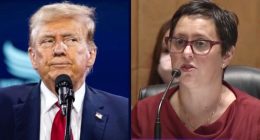The study, conducted this week by global market research firm IPSOS, revealed that 80 per cent of Aboriginal and Torres Strait Islander people support the Voice, with three quarters of respondents “very sure” about their decision.
Eight in 10 out of those surveyed said they would vote yes in a referendum, while one in 10 remained undecided with the remaining respondents said they were opposed.

“It’s clear. Overwhelmingly, First Nations People support a Voice – a chance to have a say in the policies and laws that impact us,” Alyawarre woman and Uluru Dialogue Co-Chair Pat Anderson AO said.
“Too often grass roots First Nations voices are drowned out by one or two outspoken people, Indigenous and non-Indigenous, who claim to speak for us.
“This is exactly why we need a Voice. To make sure the voices of First Nations People in our communities are heard.
“As we move towards referendum, we encourage all Australians not to be swayed by the noisy few but to be reassured that when they place their vote for yes, they walk alongside most First Nations People who want a better future for our country.”
The study surveyed Indigenous Australians from all over the country between January 20 to 24 of this year.
Read Related Also: UConn demolishes Gonzaga to roll into Final Four

Championed by the Albanese government as a key issue in last year’s federal election, the Voice is a body enshrined in the Constitution that would enable Aboriginal and Torres Strait Islander people the opportunity to provide advice to Parliament on policies that impact their lives.
The Voice has gained steady momentum in recent years and will be the focus of the first referendum held in the country in some 20 years.

Albanese said the body would be “advisory” – not legislative, prompting mixed feelings from some Indigenous spokespeople.
“We are sovereign and this is our land, and we deserve better than an advisory body,” Thorpe said.
Prime Minister Anthony Albanese said he wouldn’t be drawn into “partisan politics, whether it’s Lidia Thorpe or others”.
“(Recognition) is something missing from our nation’s constitution, and I say this, if not now when?” he said.
“If not now, when will this change occur?”





